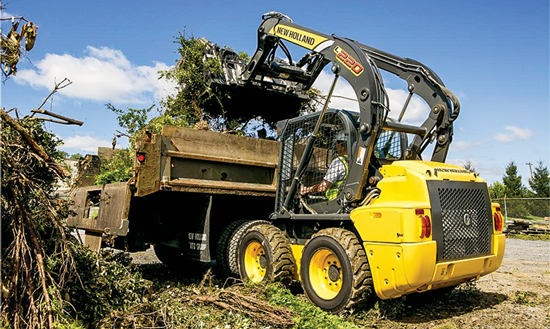Dealers say a good way to enter the skid steer loader market is through rental. There are a lot of reasons to take that path, however, there are some things to watch.
When the housing bust occurred in 2008, used skid loaders were abundant and cheap, dealers say. A sizeable number of customers defaulted on their loans and there was a rush to unload repossessed and trade-in machines to anyone who would buy. It took a few years, but dealers say the market absorbed those machines. At the same time, major manufacturers were decreasing production of new machines and inventory levels dropped sharply.
Dealers have had less access to trade-ins because of the lower production and because some customers were not buying new during the downturn — or were unable to because of bad credit. That means demand is good now to rent skid steer loaders or to sell late model machines with low hours. The market may swing again, however. Kubota and Wacker Neuson are introducing new lines and other manufacturers are ramping up production again.
If you currently offer rental, adding skid loaders to the mix may make sense. If they are your first product to rent, you’ll need to address issues of liability and damage before you move forward. Assuming that’s done, here are the major advantages to rental:
- Many machines get additional manufacturer discounts for being put in a rental fleet. The rental income that comes off as they’re utilized makes their profit potential when sold out of rental very high.
- When promoting a new product line, rental acts as a “paid demo” and it gets machines out on worksites and increases visibility. The best way to sell a machine is to get the buyer in the seat.
- Traditionally, industrial equipment has shorter terms, so rental can be a way to offset higher interest costs.
There are disadvantages though, and dealers need to consider these negative points:
- Once the machine is in a rental fleet, it counts as a sale for the manufacturer, so it is now your property. It’s difficult to transfer rental equipment to other dealers. In a market downturn, there will be no outside help in relocating rental machines.
- Usually, the warranty period begins when the machine enters a rental fleet. That may discourage future buyers, but could be an opportunity for you to sell an extended warranty.
- Skid steer loaders tend to be operated by the employee with the least seniority on the job site. They can be prone to impact with other objects on jobsites because of limited visibility. Make sure to cover any liability.
- You will likely be competing both with large rental entities and small yards. However, the small yards could be customers as well.
- Additional personnel will likely be needed to oversee the rental process and this additional staffing is during the peak selling season.
Back to How to Sell: Expanding into Construction with Skid Steers






Post a comment
Report Abusive Comment